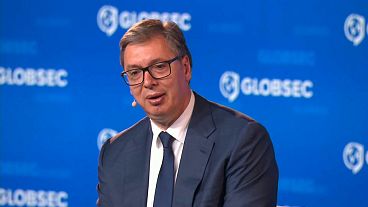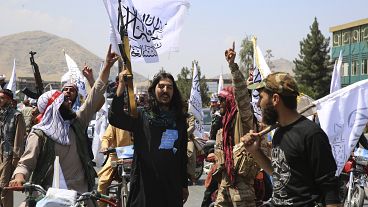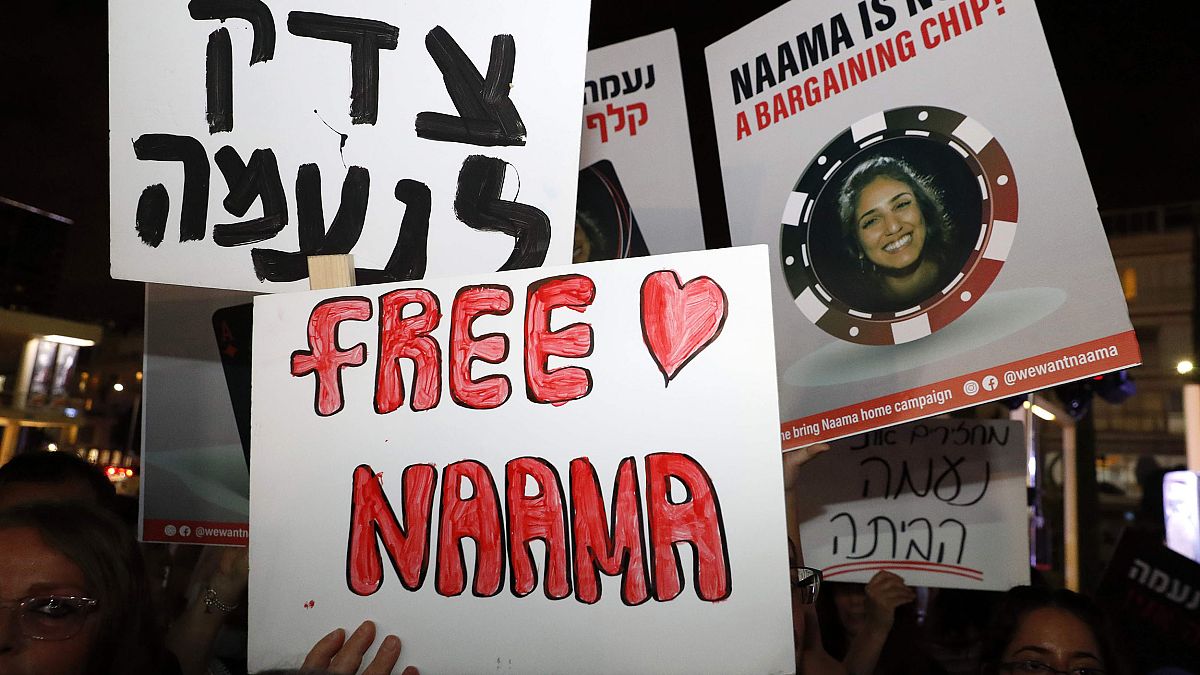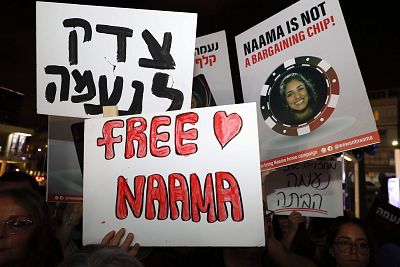Israel's Supreme Court on Sunday approved Aleksey Burkov's extradition to the U.S. on suspicion of cyber crimes.
MOSCOW — An Israeli Supreme Court decision to extradite an alleged Russian hacker to the U.S. has thrown into question the fate of an Israeli-American woman in Russian custody.
The news was the latest twist in a case that has plagued relations between Israel and Russia.
Aleksey Burkov, a Russian citizen wanted by the U.S. on suspicion of cyber crimes, was arrested in an Israeli airport in 2015. The Israeli Supreme Court on Sunday approved his extradition to the U.S., despite intense protests and a counter-extradition request from Moscow.
Burkov's case had not captured the headlines until April, when an Israeli citizen arrested while transferring through Moscow's Sheremetyevo airport was arrested for carrying 9 grams of marijuana — a comparatively small amount.
Naama Issachar, a dual U.S.-Israeli national, got what many believe to be a sentencing wildly disproportionate to the crime: seven and a half years in a Russian penal colony.
Issachar's mother, Yaffa Issachar, told NBC News of her anguish at visiting her daughter in prison.
"About a week ago, I visited Naama after not being allowed to visit her for weeks. The conversation between us was between glass and I couldn't hug her," she said. "The whole time Naama cried and told me, 'Mom I'm not a criminal. I did not commit any offense. I have to get out of here because I don't belong here. I cannot serve as a political hostage because I will not last.'"
The harsh sentencing has been characterized by Israeli officials and press as an attempt by Moscow to link Issachar's fate to the extradition of Burkov to the U.S.
Bolstering concerns that Issachar is being held as political leverage is another case from over the summer involving an American student arrested in the Saint Petersburg airport with medically issued marijuana from the U.S. The student was ultimately released with a fine and deported.
Asked by reporters last week whether Moscow was using Issachar as leverage for Burkov, Kremlin spokesman Dmitry Peskov refused to comment on the case. The State Department did not immediately respond to a request for comment.
Last month, Israeli Prime Minister Benjamin Netanyahu discussed Issachar with Russian President Vladimir Putin.
Issachar's family have previously claimed that Burkov's associates have reached out directly, explicitly linking the hacker's extradition to Issachar's fate in the Russian justice system, but declined to confirm that to NBC News. Yaffa Issachar also recently backed off a request to hold Burkov's extradition.
"Naama will not be a pawn by the Russian hacker and his people," Yaffa Issachar said in a statement. "I pray that I will not aggravate Naama's situation in the Russian prison and give full confidence to the president and the prime minister to continue working with the Russian president to bring Naama's immediate release."
Russia has very strict drug laws and cases are often prosecuted to the fullest extent of the law, but Issachar's case is not the first that outside observers believe is connected to a high-profile political issue. Last December, aformer U.S. Marine, Paul Whelan, was arrested in Moscow on suspicions of espionage.
Whether or not Issachar's case is linked to Burkov's fate, Russian protests over the hacker's extradition demonstrate a strong dislike of American extradition practices — an issue that has plagued U.S.-Russia relations for decades.
"As a matter of principle and policy, Russia is deeply angered by the extra-territorial application of U.S. laws and arrests of Russian nationals in third countries," says Vladimir Frolov, an independent Russian foreign policy analyst.
"Moscow's view is the U.S. has no right to do this and that, if they have questions or charges against any Russian nationals, the U.S. needs to activate existing bilateral law enforcement cooperation mechanisms and ask Russian authorities to investigate Russian citizens."
Matthew Bodner reported from Moscow, and Paul Goldman from Tel Aviv.














